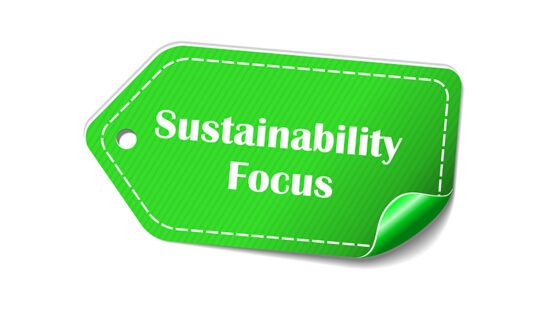A lack of consistency in climate reporting by oil and gas companies makes it difficult for investors to measure progress, new research has found.
A paper published by Columbia University’s Center on Global Energy Policy, titled ESG investing and the US oil and gas industry: an analysis of climate disclosure, found US oil and gas companies use different standards in choosing how and what to report, and there is no consistency in the emissions reductions targets they have set.
“What’s being reported is missing information. There are data gaps that aren’t being captured – things like methane leaks,” said Hon Xing Wong, a research associate at the Center on Global Energy Policy and the lead author of the new report.
Methane leaks, for example, are significant, especially since the gas is extremely good at trapping heat. A recent study by Standford University and others found the amount of methane leaks from oil and gas companies is likely several times higher than what the government estimates them to be.
And if oil and gas companies don’t monitor those incidents, they simply can’t report them.
How to report
“Nearly all of the companies surveyed stated that they use the [Task Force on Climate-Related Financial Disclosures] framework, though many companies seem to use parts of the framework and do not adhere to the full scope of the reporting requirements,” the authors of the Columbia paper wrote. “However, the authors’ analysis of the reports revealed that disclosures lacked coverage across the TCFD categories and the detail solicited by the TCFD recommendations.”
That was attributed in part to insufficient guidance from the Securities and Exchange Commission, which is currently working on a final rule that would require many large public firms to disclose the full range of their emissions, spanning Scope 1, 2 and 3.
“In the absence of such guidance, companies can independently decide what information to disclose from the TCFD and in which form to present it,” the authors noted.
For example, it was common in the reports they examined for companies to use an appendix that explained compliance with different standards, such as those of the Sustainability Accounting Standards Board or Principles for Responsible Investment, only to cite voluminous text within the reports that made the claims difficult to scrutinize.
“Although the reports are rather lengthy and present an overwhelming amount of material, they contain only sparse hard data, making them tedious to sift through,” the authors wrote.
Reports plentiful, but details lacking
The paper includes data from 15 public upstream fossil fuel companies, or those that are involved in oil exploration and products, including the six largest firms in the country. Of those businesses, 14 made sustainability reports in 2020.
Many of the companies had set emissions-reduction targets set for 2030, but very few provided much detail in their sustainability reports about how they could achieve their goals, particularly net zero by 2050.
“Occidental was an exception, as it is aiming for net zero for Scope 1 and 2 emissions by 2040 and for Scope 3 emissions by 2050,” the report read. “Additionally, Hess disclosed that a chief operating officer-led task force had been set up to consider the company’s medium- and long-term climate strategy, including whether it can feasibly achieve net-zero GHG emissions by 2050. It is likely that other firms are similarly trying to figure out internally how to make good on promises made.”
Most firms were also muted about how they integrate climate risks into their overall risk-management strategies, the authors noted. One firm, Diamondback, provided little description of its process, other than it “always monitors and manages potential legal risks,” according to the paper.
Others, such as ConocoPhillips, provided much more detailed accounts of their climate-risk assessments. That company, for example, conducts climate assessments for its large future projects, and those reports include forecasts emissions for the duration of the projects, the paper stated.
What investors want
The researchers also interviewed 12 investors whose companies are active in the energy sector, with their businesses representing a total of nearly $8trn in assets under management. Those investors, spanning major banks, insurers, asset managers and private equity funds, gave their views on the future of the oil and gas business and how future regulations will likely affect it.
All investors said the fossil fuel companies must work to reduce Scope 1 and 2 emissions, and most said that Scope 3 emissions should be reported, at a minimum.
One firm, Nuveen, has asked oil and gas companies to use standard frameworks for climate reporting, such as TCFD, said Sarah Wilson, head of ESG integration. However, even within that standard, the information that energy companies report can be inconsistent, Wilson said.
“We like them to evidence that they have board and management oversight of climate risk,” she said.
See also: – Nuveen Q&A: Too much jargon in ESG
The company wants to see quantitative climate metrics, scenario analysis and goals that are in line with the Paris Agreement, for example. Verification of emissions data by a third party is a plus, but only some oil and gas companies provide that, Wilson said.
Lacking among those companies are actual climate transition plans, she noted.
“That’s the next frontier of company reporting,” she said.
Investors who spoke with the Columbia researchers expressed uncertainty about the future of the industry and largely said they preferred approaching oil and gas through engagement rather than divestment.
However, they said they are seeking more disclosure from the firms they hold, including data about lobbying. It is problematic, for example, when a company’s publicly stated position on a topic like carbon taxes goes against its political spending, Wong noted.
“That’s something investors can be a bit more savvy on, is to hold those companies accountable,” Wong said.








